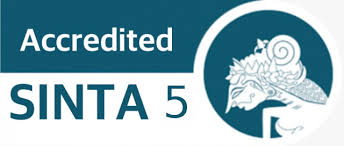“Seek Knowledge from the Cradle to the Grave”: Islamic Educational Philosophy as a Driver for Community-Based Early Childhood Education
Main Article Content
Riki Taufiki
Muhammad Haekal
Despite growing recognition of early childhood education’s (ECE) importance, rural communities in post-conflict settings often lack access to quality ECE services. This study examines how Islamic educational philosophy inspired and sustained a community-driven ECE initiative in rural North Aceh, Indonesia, following decades of conflict and natural disaster. This research investigated the sources of inspiration that motivated a rural Muslim community to establish and operate a community-based early childhood education centre, with particular focus on how religious values catalysed collective action for educational development. An ethnographic case study approach was employed in Gampong Blang, North Aceh, involving observations, interviews, and document analysis with 27 participants including community members, village stakeholders, and educators. Data were analysed through Al-Attas’ concepts of ta’dib (ethical education) and adab (proper conduct reflecting social consciousness). The Islamic principle “seek knowledge from the cradle to the grave” served as a powerful catalyst for community mobilisation, inspiring villagers to transform their traditional meunasah (Islamic community centre) into a modern ECE facility. Al-Attas’ educational philosophy, emphasising the balance between ilmu (knowledge) and adab (moral character), resonated with local aspirations for holistic child development. The community successfully integrated religious values with contemporary educational practices, creating culturally responsive pedagogy that honoured both Islamic teachings and local traditions. This study demonstrates how religious educational philosophy can effectively motivate grassroots educational initiatives in Muslim communities. The findings suggest that ECE development in Islamic contexts benefits from approaches that integrate spiritual and academic learning, challenging purely secular early childhood education models. The research offers insights for developing culturally responsive ECE programs that respect local values while meeting contemporary educational standards.
Adriany, V., & Saefullah, K. (2015). Deconstructing Human Capital Discourse in Early Childhood Education in Indonesia. Critical Cultural Studies of Childhood, Part F2172, 159–179. https://doi.org/10.1057/9781137490865_9
Afrianty, D. (2015). Women and Sharia law in northern Indonesia: Local women’s NGOs and the reform of Islamic law in Aceh. Routledge.
Akmal, S. (2023). Zikir: Menelusuri motif kebijakan populis elit politik di Kota Banda Aceh. Universitas Islam Negeri Ar-Raniry. https://repository.ar-raniry.ac.id/id/eprint/31479/
Al-Attas, M. N. (1979). Aims and objectives of Islamic education. Jeddah: Hodder and Stoughton.
Al-Attas, M. N. (1985). Islam, secularism, and the philosophy of the future. London: Mansell.
Al-Attas, M. N. (1989). Islam and the philosophy of science. Kuala Lumpur: ISTAC.
Al-Attas, M. N. (1997). The concept of education in Islam. Kuala Lumpur: ABIM.
Al-Attas, M. N. (2023). Prologomena to the metaphysics of Islam and exposition of fundamental elements of the worldview of Islam. Kuala Lumpur: ISTAC.
Alfian. I. T. (1977). Segi-segi sosial budaya masyarakat Aceh (Socio-cultural aspects of Acehnese society). Aceh. Jakarta: LP3ES.
Ali Geno Berutu. (2016). Penerapan Syariat Islam Aceh Dalam Lintas Sejarah. Istinbath Jurnal Hukum, Vol. 13(No. 2), h. 164-187.
Ali, M. (2017). Arus Pendidikan Islam Transformatif Di Indonesia: Sebuah Penjajagan Awal. SUHUF Jurnal Pengkajian Al-Qur’an Dan Budaya, 29(1), 1–14. http://journals.ums.ac.id/index.php/suhuf/article/view/4930
Astuti, S. (2017). Agama, budaya dan perubahan sosial perspektif pendidikan Islam di Aceh. Jurnal MUDARRISUNA: Media Kajian Pendidikan Agama Islam, 7(1), 23–46.
Badan Pusat Statistik dan Bappeda Aceh. (2004). Aceh Dalam Angka 2004. Badan Pusat Statistik Aceh, 11(1), 1–451. http://scioteca.caf.com/bitstream/handle/123456789/1091/RED2017-Eng-8ene.pdf?sequence=12&isAllowed=y%0Ahttp://dx.doi.org/10.1016/j.regsciurbeco.2008.06.005%0Ahttps://www.researchgate.net/publication/305320484_SISTEM_PEMBETUNGAN_TERPUSAT_STRATEGI_MELESTARI
Badruzzaman, I. (2022). Fungsi meunasah sebagai lembaga hukum adat di Aceh Besar (Meunasah as an institution to uphold customary law in Aceh). Universitas Syiah Kuala.
Barron, P., Rahman, E., & Nugroho, K. (2013). The contested corners of Asia, subnational conflict and international development: The case of Aceh, Indonesia.
Basri, H. (2010). Islam in Aceh: institutions, scholarly traditions, and relations between ulama and umara. In Aceh: History, politics and culture, (pp. 180–200). Singapore: ISEAS.
Cresswell, J. (2013). Qualitative inquiry & research design: Choosing among five approaches.
Dhuhri, S. (2016). The Text of Conservatism: The Role of Abbas’ Ahl al-Sunnah wa al-Jamā ‘ah in Underpinning Acehnese Current Religious Violence. Studia Islamika, 23(1), 29–59.
Engineer, A. A. (1987). The origin and development of Islam. In An essay on its socio-economic growth. Sangam Books.
Fikri, M. (n.d.). ISLAM PERSUASIF DAN MULTIKULTURALISME DI ACEH: Upaya Rekonstruksi Penerapan Syariat Islam Berbasis Pendidikan. 3.
Firdaus, F. (2025). PERAN TUHA PEUT DALAM PELAKSANAAN URUSAN PEMERINTAHAN BERDASARKAN QANUN PIDIE JAYA NOMOR 2 TAHUN 2018 TENTANG PEMERINTAHAN GAMPONG (Studi Penelitian di Gampong Kayee Raya, Kecamatan Bandar Baru Kabupaten Pidie Jaya). Universitas Malikussaleh.
Inayatillah, Mohd Nor, M. R., Asy’ari, A., & Faisal, M. (2022). Social History of Islamic Law from Gender Perspective in Aceh: A Study of Marriage Traditions in South Aceh, Indonesia. Samarah, 6(2), 573–593. https://doi.org/10.22373/sjhk.v6i2.14598
Munandar, R. (2025). Peran Keuchik dalam Menjembatani Kesenjangan Partisipasi Masyarakat dalam Pembangunan Desa di Gampong Pudeng. Universitas Islam Negeri Ar-Raniry Banda Aceh.
Mwaura, P. A. M., Sylva, K., & Malmberg, L. E. (2008). Evaluating the Madrasa preschool programme in East Africa: A quasi-experimental study. International Journal of Early Years Education, 16(3), 237–255. https://doi.org/10.1080/09669760802357121
Nazamuddin, A., & Mahmud, S. (2010). Economic modernization and its influence on the social system in Aceh. In Aceh: History, politics and culture, (pp. 81–98).
Parawati, E. D. (2025). SYARIAT DI INDONESIA ( Studi Kasus di Provinsi Aceh ). 5.
Roqib, M. (2011). Prophetic education: Kontekstualisasi filsafat dan budaya profetik dalam pendidikan (Contextualization philosophy and prophetic culture in education). Buku Litera.
Shadiqin, S. I. (2010). Islam dalam Masyarakat Kosmoplit: Relevan kah Syariat Islam Aceh untuk Masyarakat Modern ? Kontekstualita: Jurnal Penelitian Sosial Keagamaan, 25(1), 23–51.
Shah, R., & Lopes Cardozo, M. (2014). Education and social change in post-conflict and post-disaster Aceh, Indonesia. International Journal of Educational Development, 38, 2–12. https://doi.org/10.1016/j.ijedudev.2014.06.005
Subedi, B. (2006). Theorizing a “halfie” researcher’s identity in transnational fieldwork. International Journal of Qualitative Studies in Education, 19(5), 573–593. https://doi.org/10.1080/09518390600886353
Surbakti, N. (2010). Pidana Cambuk Dalam Perspektif Keadilan Hukum Dan Hak Asasi Manusia Di Provinsi Nanggroe Aceh Darussalam. Jurnal Hukum Ius Quia Iustum, 17(3), 456–474. https://doi.org/10.20885/iustum.vol17.iss3.art6
Taufiki, R. (2020). Education in post-conflict and post-tsunami Aceh : An ethnographic case study on meunasah ’ s ECE in Aceh , Indonesia. 276. https://bridges.monash.edu/ndownloader/files/22173846
von Benda-Beckmann, F. (2002). Who’s afraid of legal pluralism? Journal of Legal Pluralism and Unofficial Law, 34(47), 37–82. https://doi.org/10.1080/07329113.2002.10756563
Wahid, U. (2013). The Function of Meunasah In Social Cultural Communication Process Within Acehness Society. Journal of Human Capital Development, 6(1), 151–167.
Wahid, U. (2015). Meunasah, Power and Self-Critics towards Government and Aceh Political Elite on Aceh Women Political Struggle. Journal of Asian Scientific Research, 5(8), 385–393. https://doi.org/10.18488/journal.2/2015.5.8/2.8.385.393
World Bank. (2009). Aceh growth diagnostic: Identifying the binding constraints to growth in a post-conflict and post-disaster environment. World Bank.



